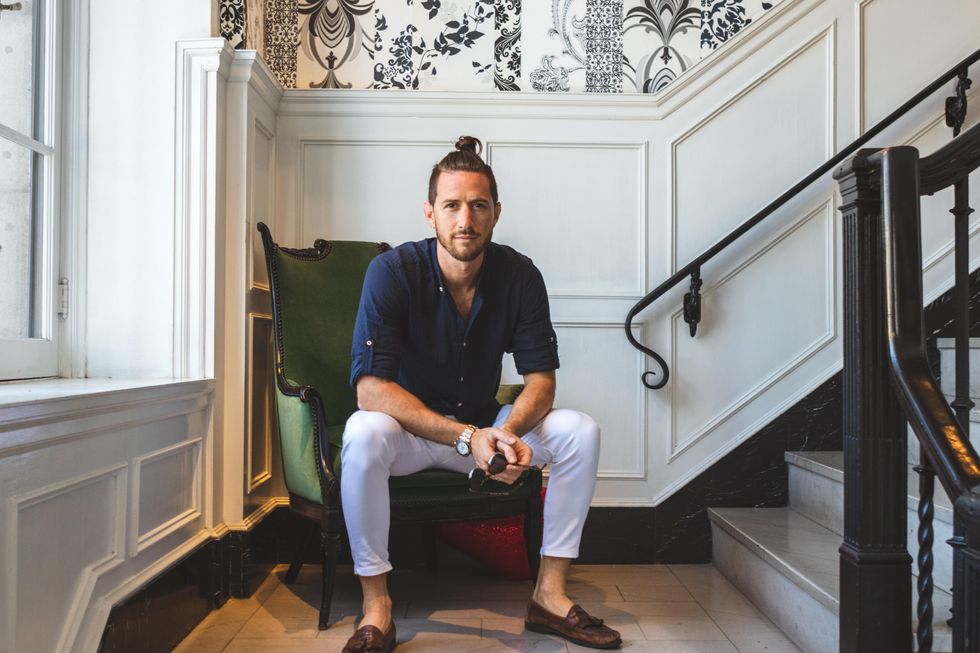Meet the Creator Commerce Company That Helps Brands Identify Which Celebs Are Suited for a Brand Deal
In February, Martha Stewart took to TikTok for the first time to give people her tips on posting thirst traps. The video, which taps into the platform’s trend of using the text-to-speech feature, was part of an ad campaign for french makeup brand Clé de Peau. Posted in February and viewed 9.2 million times, the 30-second clip is the end result of a partnership between Clé de Peau and creator commerce company Whalar—the Streamy Award winner for agency of the year. According to Whalar CMO Jamie Gutfreund, Clé de Peau had approached Whalar in the fall of 2020.
“[Stewart] did what she does best, which is telling you what she's thinking and how you should do something,” Gutfreund says.
Eight months later, the campaign won Branded Video of the year at the Streamy Awards.
Founded in 2016, Whalar oversees brand partnerships and talent management throughout its Los Angeles, New York and London offices.
But what makes Whalar so successful is its ability to identify which celebrities are ripe for a social media brand deal. To that end, Gutfreund says not all celebrities are cut out for this type of marketing since they’re used to highly produced, scripted content, which typically does not capture audiences on social platforms.
“That is the antithesis of what works not just on TikTok, but in social video,” Gutfreund says. “And the celebrities that are doing really well are the ones that bring their messiness.”
Across the board, authenticity performs better on TikTok and the like. Which helps explain why marketing agencies have had to shift their approach away from elaborate productions and towards more casual videos, which perform better on social media.
“The juggernaut in the industry is obviously TikTok,” says Whalar CEO Rob Horler. “It has energized the whole creator economy and brought it mainstream.”
In other words, that celebrities like Martha Stewart are experimenting with social media ads is a testament to the influence of the creator economy writ large. But the infrastructure of this space is, nonetheless, still supported by traditional creators that often lack household name recognition. For now. But according to Horler, influencers are increasingly the go-to for many marketing campaigns, especially as companies tighten their purse strings.
In fact, Horler says Whalar no longer has to convince brands that influencer marketing is worth the investment. Instead, he says, brands are looking at how they can best scale their efforts in the over $100 billion industry.
On the talent management side, Whalar helps creators navigate brand deals and logistics. Part of those efforts also includes the Creator Academy, which Whalar established earlier this year. The program offers classes and mentorship to help new creators navigate issues like finding management, understanding legal documents and overseeing finances.
“Not all creators are young, but many of them are young,” Gutfreund says. “We try to really look out for them.”
Horler, for his part, doesn’t have to look very far to see just how influential some of these online influencers have become. He points to his two children as just one example.
“Their cultural references are creators,” Horler says. “I think [creators] will continue to expand in popular culture.”
Which is why Horler believes the creator economy represents a fundamental shift in media advertising—one that companies have to recognize and integrate into their marketing strategies. He says companies looking to reach consumers will struggle to do so without the help of creators.
“They will be the tastemakers,” Horler says. “They will be the people that we all look to.” I’d go so far as to argue, they already are.
- A Breakdown of the Data TikTok Collects on American Users ›
- These Experts Believe the Music Industry is Primed for the Metaverse ›
- The Streamy Awards Prove that Online Creators and Traditional Media Are Still Disconnected ›
- Brands Are Reevaluating Influencer Deals Following Kanye West’s Fallout ›
- Employee By Day, Influencer By Night: The Rise Of Non-Professional Creators ›
- dotLA Summit: Why Building Community Is More Important Than Gaining New Followers ›
- The Latest Influencer Trend: De-Influencing - dot.LA ›



 HeyPal CEO Jonathan Maxim. Photo courtesy of HeyPal
HeyPal CEO Jonathan Maxim. Photo courtesy of HeyPal